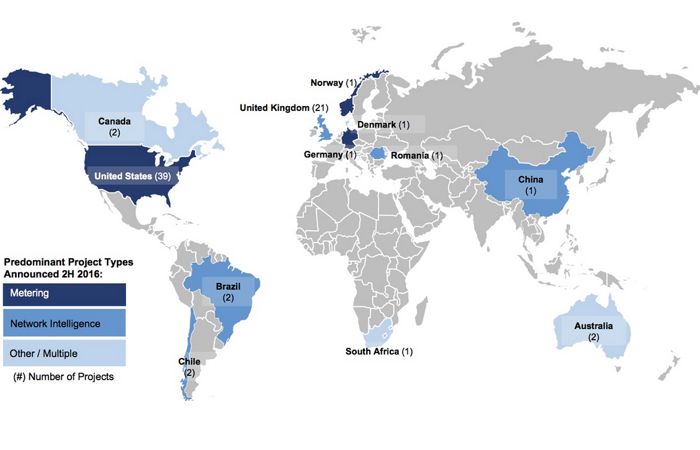Big Data and IoT Key to Fixing Crumbling Water Infrastructure
Published on by Water Network Research, Official research team of The Water Network in Technology
Smart water and technology companies are finding a growing customer base in utilities and municipalities, which see data and analytics as critical tools for overcoming the problem of water infrastructure.

More than $20 billion is slated for water metering, data management, and analytics from 2016 to 2025, globally, according to Bluefield Research.
Mounting financial pressure that is forcing water utilities and municipalities to do more with less is driving this market growth, the analyst firm says. This has sparked an uptick in demand for innovative solutions to more cost-effectively manage billing and customer management, leakage rates and energy consumption.
“By zeroing-in on key drivers of operating costs, water utilities are optimizing their operations with smart technologies,” said Keith Hays, vice president of Bluefield Research. “The solutions are not new, as they draw from existing equipment, software and analytics tools. But a significant hurdle will be integrating legacy systems with new software platforms.”
These solutions also provide significant cost savings, too. In some cases they can halve non-revenue water leaks and billing errors, and reduce energy consumption from 20 percent to 40 percent. As much as 30 percent of water utility operating expenditures can be improved almost immediately through more dynamic and real-time system monitoring, according to Bluefield.
Smart water growth isn’t limited to utilities and municipalities, however. Private corporations are also employing IoT solutions to save on water bills and improve environmental management.
Fetzer Vineyards, for example, recently installed smart water metering technology from Apana that the winery expects to reduce its water use by a quarter.
The smart water meters, installed throughout the winery’s Hopland, California campus, will allow Fetzer Vineyards to pinpoint leaks and water waste incidents in real time. Fetzer Vineyards says the technology will allow it to avoid unnecessary waste and meet its 2020 water efficiency goal two years early, in 2018.
Source: Environmental Leader
Media
Taxonomy
- Integrated Urban Water Management
- Data Management
- Integrated Water Management
- Energy
- Infrastructure
- Integrated Infrastructure
- Internet
- Data Analysis